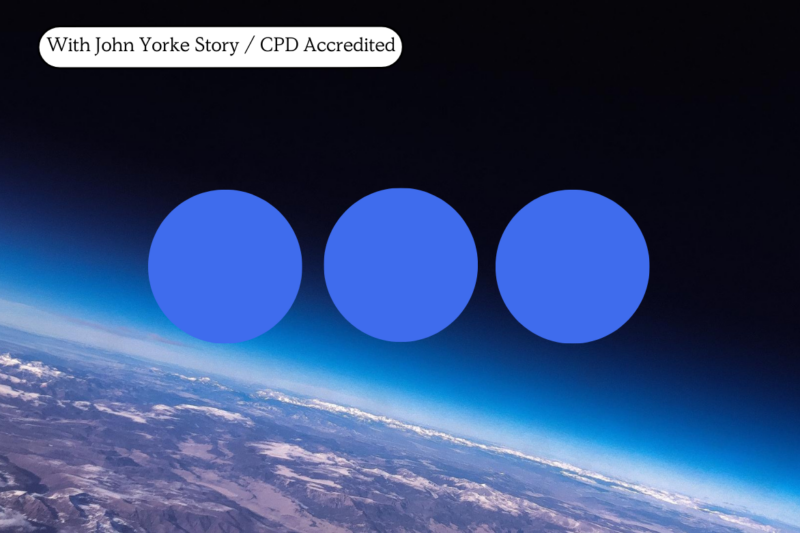Who is the course for?
Are you new to writing and want to share your story? This course is designed for people who have an urge to write or tell stories but have no experience or lack confidence.
It’s suitable if you:
- Are completely new to writing and don’t know where to start
- Want to learn more about the basic principles of writing stories
- Would like to build confidence in yourself and in your writing
- Feel the need to write about your life experiences
- Would like to record the life of your family, community or region
- Love to read and would like to have a go at writing
- Enjoy the discipline of deadlines and peer feedback
- Can dedicate 5-7 hours per week for the duration of the course
- Want to join a friendly and supportive small group of learners
What will I learn?
This course allows you to:
- Start writing and find inspiration in real-life experiences
- Recognise how to build an idea, event, memory or fact into a narrative
- Appreciate the value of writing, rewriting, editing and critiquing
- Build confidence by expressing and recording a life experience
- Value stories that emerge from the realities of life in your community and region
- Trust your instinct when selecting and developing ideas
- Become a more effective writer, for recreation and at work
- Develop the transferable skills writers require (eg discipline, attention to detail, ability to work to deadlines)
- Practise giving feedback to other writers and receiving responses to your work
- Build greater independence, autonomy and judgement as you work on a final assignment
What are the sessions?
Session 1: Start to Write
Start by learning to overcome forces that might stop you writing, and set down some words on the page. Then learn how to think like a writer about real-life experiences, and turn them into stories people want to read. That means understanding the basic rules of storytelling. By the end of the session you’ll know how to find inspiration from your past and turn an event into inspiration for a story.
Session 2: Turn Experiences into Stories
In week 2, focus on how to turn your experience into a story by creating structure and crafting a beginning, middle and end. You’ll learn how to shape a story to keep readers engaged, and we’ll share tricks professional writers and editors use to work out how their stories can be improved.
Session 3: Polish Your Words
We’ll look at how to improve your use of language, and make your writing distinctively your own. You’ll learn how to create compelling scenes, write engaging dialogue, and find a resonating ending that leaves the reader feeling satisfied. And we’ll look at methods the professionals use to make their writing more effective.
Session 4: Edit Your Work
The last session is two weeks long. In week 4, you will learn how to effectively edit your work – the part of the process that makes you a real writer. We’ll explore how the process of writing can change how you understand your own experience, and consider how to use such changes. We’ll also look at ways to maintain the discipline to finish a project, and how, when you’re finished, to put your work forward for competitions, anthologies and reading events. The final week is extra time to finish your final piece of writing.
How much time do I need to commit to this course?
You will need to put in around 5-7 hours each week. The deadline for posting your final assignment each week is the end of Saturday. The deadline for giving feedback to others is the end of Sunday. Other than that, you can work through the course materials each week at your own pace.
What time will I need to log on?
There’s no need to log in at a set time to take part – sessions open to a timetable and you have until the end of each session to work through the materials in the online classroom.
So you can read the tutor notes and listen to the podcasts, watch the videos, analyse extracts, react to prompts and work through mini-exercises at any time of day or night that’s best for you. You can also contribute to discussions on our forums 24/7, so the online classroom feels like a rich and lively shared experience.
Most people on the course fit learning around their work and caring responsibilities, which is why we teach in this non-synchronous way. It also suits those studying in another language, and offers advantages in terms of accessibility and different learning styles. We ask that you submit your final exercise in each session by the deadline, then read and critique the work of some of your peers.
If there are live Zoom sessions in your course, your moderator will let you know the timing. If you can’t make it, you can send in questions in advance and catch up with the recording afterwards. Past sessions and any recordings remain available throughout the course – and in the alumni area afterwards – so you can revisit any of the learning, revise exercises and chart your progress at any point.
What happens after the course?
Join our alumni community
After your course, you can join our online alumni community – a friendly group of writers supporting each other as they continue to explore and develop their writing. There’s no cost for this. It’s easy to access via the online classroom, where you can:
- Revisit all your courses materials, including tutor notes, feedback, videos, podcasts and forum posts
- Rejoin your classmates, and continue working together in a private space
- Meet alumni from other courses to find beta-readers and share work on our critiquing forum
- Network with other writers working in your genre or area of interest
- Take part in regular ‘sit and write’ Zoom sessions, to push forward with your work-in progress
- Join our monthly live alumni events with our expert tutors and industry guests, including agents, editors, publishers, competition and festival organisers, and prizewinning writers
Commission a report on your work
If you’d like to receive a personalised, detailed report on your final piece of writing from your course tutor, this is available at an extra cost. You’ll receive detailed written feedback assessing your ideas and writing, plus advice on what steps to take next.
Bursary information
If you are a writer based in North of Tyne, you may be eligible for a bursary discount through New Writing North.
You can submit your application through this site.
This course is open to writers all over the globe. If you are based anywhere else in the world, you can buy now here.








